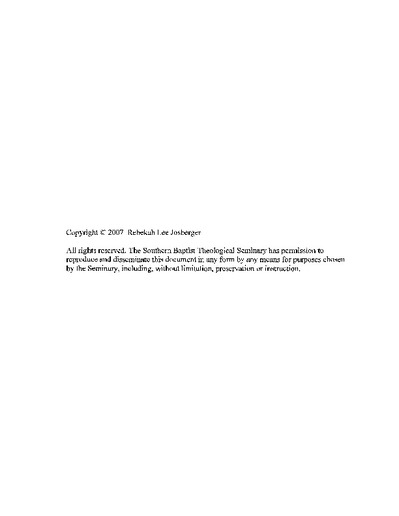Between rule and responsibility: The role of the 'AB as agent of righteousness in Deuteronomy's domestic ideology
Subject
Husband and wife (Jewish law)Father and child--Religious aspects--Judaism
Bible.--O.T.--Deuteronomy XXI-XXV--Criticism, interpretation, etc.
Family--Biblical teaching
Husbands--Biblical teaching
Wives--Biblical teaching
Abstract
This dissertation explores the relationship between the ancient Israelite HOH and the members of his family as portrayed in the prescriptive texts of Deuteronomy. In choosing the prescriptive texts, this study distinguishes between the actual (what was) and the ideal (what should have been).
Chapter 2 examines those texts, elsewhere referred to under the rubric of "family law," which specifically address the rights and responsibilities of the father in relation to other members of his household. These texts include Deuteronomy 21:10-14; 21:15-17; 21:18-21; 22:13-21; 24:1-4; 24:5 and 25:5-10. Each text is examined with focus on the characters involved, the setting (including relevant Old Testament and ancient Near Eastern background material), and ultimately the main concern or concerns driving each text. Those concerns are analyzed to see what implications the text has for the role and responsibilities of a righteous father in ancient Israel. This study seeks to establish from these texts the underlying principles that were to govern the use of his authority within the household.
Chapter 3 consists of a synthesis of the results of the study and suggestions for further research.
This work contends that these texts presuppose, rather than establish, a father's rights. Further, the texts view the father's authority in terms of responsibility, namely responsibility for the well-being of the members of his household to be achieved through zealous commitment to righteousness. Finally, it is proposed that abuse of a man's authority resulting in social degradation of a woman is followed by restrictions on that man's authority.

